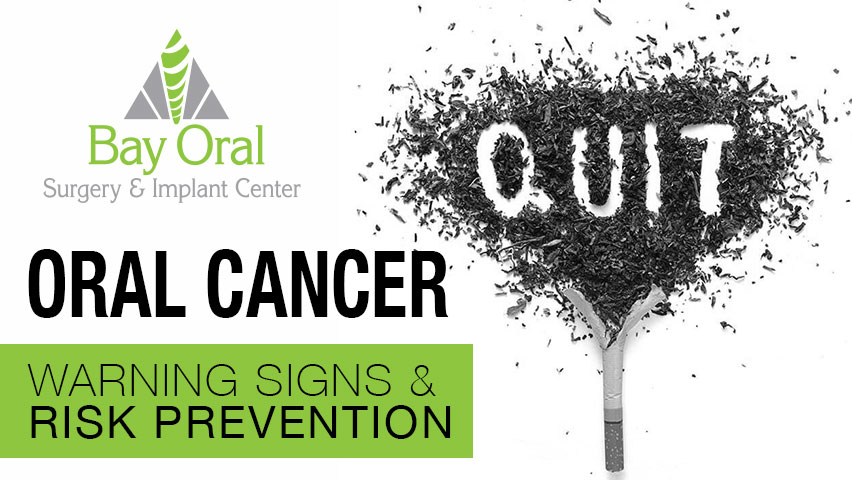
Oral or oropharyngeal cancer kills roughly one American every hour. Since April is Oral Cancer Awareness Month, now is a good time to reflect on the sobering statistics and focus on prevention.
Risk factors
Tobacco and alcohol: Although lifestyle and other factors can contribute to oral cancer, people who use tobacco and alcohol consumption are at the greatest risk. And, when tobacco use and heavy drinking are combined, the risk becomes even greater. According to the Oral Cancer Foundation, a combination of the two behaviors appears to have a synergistic effect that increases risk.
Diet: What you eat may also play a smaller role in oral cancer. Studies have shown that a diet rich with fruits and/or vegetables has been associated with a decreased risk of oral or when compared with lower consumption.
HPV: Approximately 12,000 Americans ages 15 to 24 are infected with HPV every day. This is a frightening statistic considering that oropharyngeal cancers, mostly in the tonsil areas and base of the tongue, are primarily caused by the HPV virus. Testing positive for HPV doesn’t guarantee you will get the disease, but it is a significant risk factor.
Warning signs and prevention
Unfortunately, oral cancer can be difficult to detect in early stages, so patients may not recognize symptoms until the disease has progressed. In fact, a little more than half of patients diagnosed with oral cancer will still be alive in five years. According to Mayo Clinic, these are some things to watch out for:
- A lip or mouth sore that doesn’t heal
- A white or reddish patch on the inside of your mouth
- Loose teeth
- A growth or lump inside your mouth
- Mouth pain
- Ear pain
- Difficult or painful swallowing
Oral cancer is preventable. Quitting tobacco use is the best way to reduce your risk of oral and many other kinds of cancer. Other lifestyle changes, including reduced alcohol consumption, a healthy diet and avoiding sun exposure/wearing lip balm with sunscreen can also reduce risk. Make sure you get an oral cancer screening at every regular dental check-up. If you experience symptoms that don’t go away, tell your dentist immediately.
Visit www.oralcancerfoundation.org to learn more about free screenings or how you can get involved. Or, contact us at Bay Oral to schedule an appointment.
